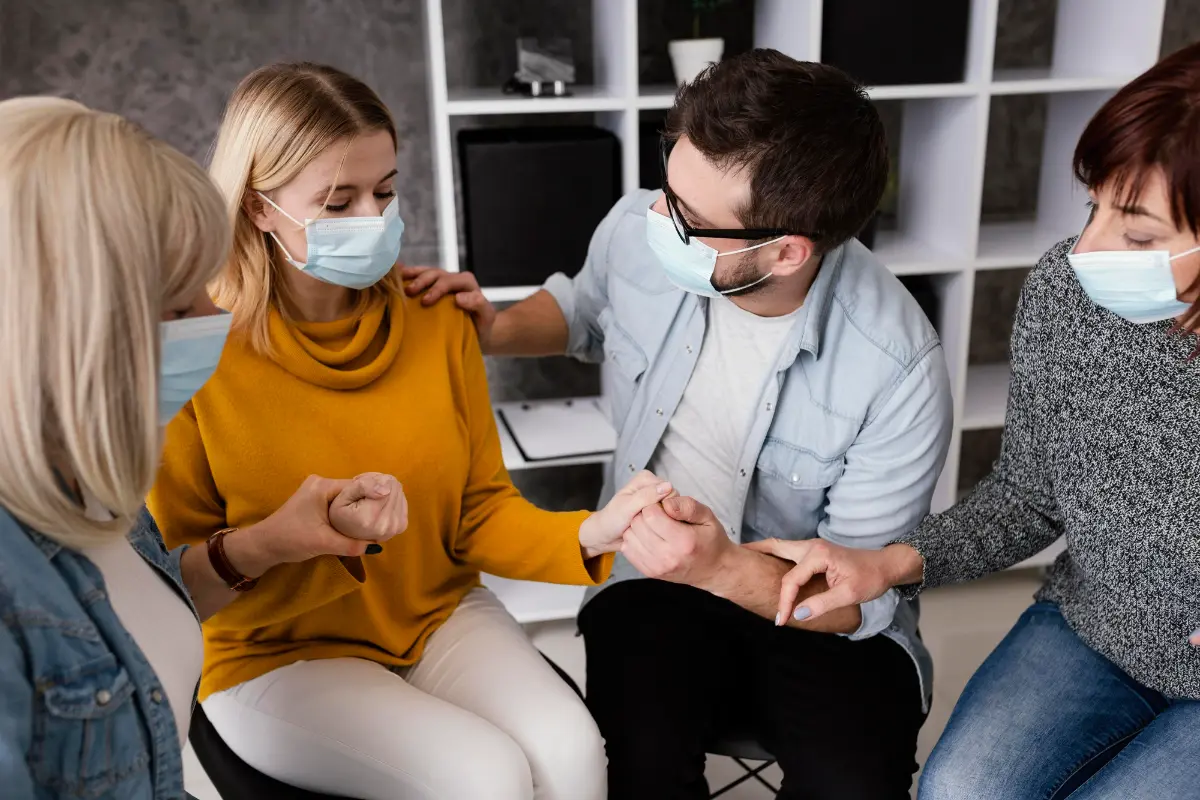Table of Contents
The Profound Effects of Social Isolation on Mental Health
Do you know How Social Isolation Affects Mental Health? Social interaction is an essential part of human existence. They give us possibilities for growth, emotional support, and a sense of community. The development of technology has changed how we communicate and interact in today’s fast-paced world, often leading to increased social isolation. This article delves into the subject of social isolation’s impact on mental health, highlighting its many aspects, difficulties, and potential solutions.
It may seem odd to talk of social isolation in a connected society with digital technology. The paradox, though, is that although we are virtually connected, face-to-face contacts are becoming less common. This contemporary problem has important effects on mental health. Social isolation can have a negative impact on our emotional health, from inducing feelings of loneliness to aggravating pre-existing mental health disorders.

How Social Isolation Affects Mental Health
Physical isolation is only one aspect of social isolation; it also refers to the absence of fruitful social contacts. This deficiency may result in a number of mental health issues, including:
Increased Loneliness and Depression Feelings
Loneliness can be bred through social isolation, starting a chain reaction of unfavorable sentiments. Due to our innate social nature, we naturally feel empty when we aren’t able to contact others on a daily basis. Long-term loneliness is frequently the cause of depression, a serious mental health condition that requires care and attention.
Impact on Self-Esteem and Self-Worth
Without a network of friends and family to lean on, those who are socially isolated could feel more stressed and anxious. It may be difficult to effectively regulate these emotions if there are no outlets for them. To prevent these feelings from rising, it is essential to develop appropriate coping strategies.
Impact on self-worth and self-esteem
Our regular social interactions help to shape our perception of ourselves. When people are alone, they may begin to doubt their value, which lowers their self-esteem. Extended isolation can harm a healthy self-image while providing validation and supportive feedback from social interactions.
Aggravation of Pre-existing Conditions
Social isolation can exacerbate the symptoms of people who already have mental health issues, including anxiety, sadness, or bipolar disorder. It can be more difficult to properly manage these circumstances when there is a lack of social support and participation; thus, a strong repertoire of coping mechanisms is required.
Disruption of Daily Routine and Productivity
Social contacts frequently influence our daily schedules. This framework can collapse in isolation, which will result in a lack of desire and lower output. To combat these consequences, maintaining a routine and establishing reasonable goals become essential.
Limited Access to Information and Support
Social interactions make it possible for information sharing and the availability of support networks. People who are socially isolated may have less access to important information and emotional support, which could make them feel cut off from their surroundings.

Strategies to Cope with Social Isolation
Cultivating Virtual Social Connections
By utilizing technology, people can create virtual connections through social media, digital platforms, and online communities. By sharing experiences and having meaningful conversations, one can combat feelings of loneliness.
Prioritizing Self-Care and Wellness
Self-care activities like mindfulness, exercise, and hobbies can dramatically improve mental health when time is dedicated to them. Setting up a regular regimen for self-care can provide structure and a sense of direction.
Seeking Professional Help
A proactive move is to seek professional assistance from mental health professionals when isolation symptoms become overpowering. Virtual or in-person therapy sessions provide a secure setting for talking about feelings and creating coping mechanisms.
Engaging in Outdoor Activities
Getting outside and spending time in nature might be beneficial for mental health. Outdoor pursuits can be a welcome reprieve from isolation and have a relaxing impact on the mind.
Volunteering and Giving Back
Volunteering and performing acts of kindness can give people a sense of connection and purpose. Contributing to the community develops a sense of community and helps counteract the harmful consequences of isolation.
Exploring New Hobbies and Interests
Isolation can provide you with the chance to discover previously undiscovered hobbies or interests. A creative project or learning a new skill can be interesting and gratifying at the same time.
Summary
It seems odd that social isolation has negative consequences for mental health in a time when connectedness is so readily available. Understanding how isolation affects our emotional health is the first step in reducing its harmful effects. People can develop resilience and keep their mental health even in the face of isolation by actively seeking out connections, engaging in self-care, and welcoming new experiences.
FAQs
Q: Can social isolation lead to severe mental health conditions?
A: Even though not everyone who is socially isolated may experience a severe mental health disease, ongoing isolation can raise the risk of illnesses like depression and anxiety.
Q: Are the effects of social isolation more likely to affect introverted people?
A: Even though introverted people may feel more at ease in solitude, they nevertheless need meaningful social contacts to stay emotionally healthy.
Q: How can I help a friend or relative who is feeling lonely in society?
A: Encourage them to get professional assistance if necessary, start up frank dialogues with them, and offer to engage in activities with them, even electronically.
Q: Is social media a trustworthy replacement for face-to-face interactions?
A: While social media can aid in keeping ties alive, it is crucial to combine it with real-world encounters to prevent creating phony connections.
Q: Can pets help with social isolation’s effects?
A: Yes, pets can offer emotional support and companionship, reducing the harmful effects of loneliness.
Q: Are there any benefits to spending time by yourself?
A: Yes, solitude can foster self-awareness, originality, and personal development. Balance is necessary to counteract its negative consequences, though.
Also Read: Careful Don’t Share Your Problems




